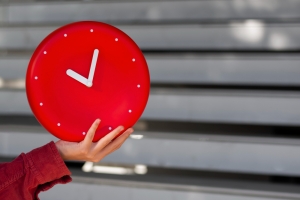Living in Michigan means your hair faces a year-round battle against some of the harshest weather conditions in the country. From bone-chilling winters that strip moisture faster than you can say "polar vortex" to humid summers that leave your scalp feeling like a swamp, the Great Lakes State doesn't mess around when it comes to testing your hair's resilience.
For those experiencing persistent hair concerns beyond typical seasonal changes, understanding how Michigan's extreme weather cycles affect your scalp can make the difference between thriving locks and a thinning disaster.
The Science Behind Seasonal Hair Drama
Your hair follows a predictable growth cycle—anagen (growth), catagen (rest), telogen (shedding), and exogen (release). But here's the kicker: environmental stressors can push more follicles into that telogen phase prematurely. Michigan's weather swings create the perfect storm for this kind of disruption.
Temperature changes affect blood circulation to your scalp. When it's freezing outside and blazing hot inside thanks to cranked-up furnaces, your follicles get confused. Add in humidity fluctuations that would make a meteorologist dizzy, and you've got a recipe for hair chaos.
Winter: Your Hair's Worst Enemy
Michigan winters are brutal, and your hair knows it. That dry, cold air outside? It's basically a moisture vampire. Then you step inside where the heating system has turned your home into the Sahara Desert. The result? Static electricity that makes you look like you stuck your finger in an electrical socket, plus breakage that leaves your bathroom floor looking like a barber shop.
Hard water—common throughout West Michigan—makes everything worse. Those minerals build up on your scalp, creating a barrier that prevents moisture from getting where it needs to go. Your hair becomes brittle, your scalp gets irritated, and that cozy winter hat you love? It's creating friction damage every time you put it on.
The lack of sunlight doesn't help either. Vitamin D deficiency affects hair growth cycles, which explains why so many people notice increased shedding during those long, gray Michigan months.
Spring's False Promises
Just when you think you've survived winter, spring throws its own curveballs. Pollen counts skyrocket around the Great Lakes, triggering scalp sensitivities in people who never had allergies before. Your body's adjusting to longer days and changing hormones, which can temporarily increase hair shedding.
This is actually when many people first notice their winter damage. All that dryness and breakage from the cold months becomes obvious as you start spending more time outdoors and actually looking at your hair in natural light.
Summer: Heat and Humidity Havoc
Michigan summers bring their own set of challenges. The humidity near the Great Lakes creates a unique environment where your hair can go from perfectly styled to frizzy mess in about thirty seconds. That moisture in the air? It causes your hair shaft to expand, leading to texture changes and increased fragility.
Then there's the sun exposure. Being near all that reflective water means you're getting UV rays from multiple angles. Your scalp—often forgotten when applying sunscreen—takes a beating. Sun damage doesn't just affect your skin; it breaks down the proteins in your hair, leaving it weak and prone to breakage.
Fall: The Great Shedding
Fall is notorious for increased hair shedding, and Michigan's dramatic temperature swings make it worse. Your body's preparing for winter, which naturally triggers some hair loss. But the constant weather changes—70 degrees one day, 40 the next—stress your system and can accelerate the process.
When DIY Isn't Enough
You can buy all the deep conditioners and scalp treatments at the drugstore, but sometimes Michigan's weather demands professional intervention. Clark Internal Medicine and Aesthetics in Westland offers advanced scalp rejuvenation therapies that address the root causes of weather-related hair damage.
Professional treatments like PRP therapy and laser therapy can restore circulation that's been compromised by months of environmental stress. These aren't just fancy spa treatments—they're medical interventions that target the cellular level where real healing happens.
Building Your Defense Strategy
Start with the basics: invest in a good humidifier for winter months. Your hair will thank you. Use clarifying shampoos monthly to combat hard water buildup, and don't forget SPF for your scalp during summer activities.
But here's the real talk—if you're noticing persistent thinning, unusual shedding patterns, or scalp irritation that doesn't resolve with seasonal changes, it's time to see a professional. What looks like weather damage might actually be androgenetic alopecia or another condition that requires medical treatment.
The Bottom Line
Michigan's weather is tough on everyone, but it doesn't have to destroy your hair. Understanding how each season affects your scalp helps you prepare and protect what you've got. And when Mother Nature wins a few rounds? That's when professional scalp health treatments become your secret weapon.
Your hair can absolutely thrive in Michigan's challenging climate—it just needs the right strategy and sometimes, the right professional support. Because honestly, life's too short to spend it worrying about whether your hair can handle another Michigan winter.






